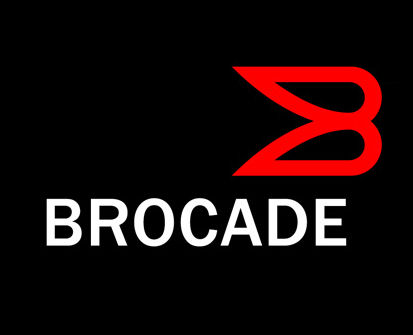

The ongoing legal dispute between Brocade and A10 Networks took another turn last week when a federal court judge upheld more than half of the almost $112 million (£70m) in damages awarded to Brocade after a patent-infringement trial last summer, and ordered A10 to stop shipping and selling products in the United States that included the patents at issue.
At the same time, A10 executives noted that US District Court Judge Paul Grewal also ruled on 10 January that the networking device vendor could receive a new trial over the damages awarded by a jury in August 2012 and that the injunction Grewal granted was much more narrow than what Brocade officials were seeking.
The judge’s rulings set the stage for more court years in a legal dispute that has lasted more than two years, including last summer’s three-week trial.
“We appreciate the Court’s careful attention to the evidence and its willingness to enforce important intellectual-property rights,” Tyler Wall, vice president and general counsel at Brocade, said in a statement on 11 January. “The jury found A10 guilty of broad-based intellectual-property infringement and unfair competition. We are very pleased that this permanent injunction will stop A10 from unlawfully using Brocade’s patents.”
A10 chief executive Lee Chen said Grewal’s decisions will have little impact on current users of the company’s AX Series of application delivery controllers – who will continue to get support for their products – and that A10 already has developed new offerings that do not infringe on the Brocade patents.
The AX Series controllers with the redesigned software will begin shipping immediately, Chen said.
“We are our industry’s leading innovator, and this ruling will not affect our customers, our partners or our progress,” Chen said in a statement. “We have already designed around the issue, completed rigorous testing of non-infringing software, and will ship AX Series products immediately to serve our outgoing and future orders.”
Brocade officials had accused A10 of infringing on Brocade patents involving technologies for global server load balancing and high availability.
Brocade in 2008 bought networking switch and router vendor Foundry Networks for $3 billion, a move designed to give it a more complete networking offering to better compete with larger rivals like Cisco Systems.
Chen had helped set up Foundry Networks, but left in 2004 to create A10 Networks. During the trial last summer, a jury ruled in favor of Brocade, finding that A10’s AX Series of load balancers infringed on specific Brocade patents.
In addition, the jury ruled that A10 had copied proprietary code that Brocade used in its ServerIron products, and that there was “misappropriation of four trade secrets involving techniques used in the Brocade ServerIron products that A10 applied for use in its AX series”, according to Brocade.
The jury also found A10 participated in unfair competition by interfering with the contract of an engineer while he was employed at Foundry.
The jury awarded Brocade more than $60 million in damages involving the copyright infringement, and another $50 million connected to lost profits on the patent claims.
In his ruling on 10 January, Grewal upheld the $60 million award, but granted A10 a new trial on the $50 million, according to the companies.
A10 officials said the company is appealing to the US Court of Appeals in hopes of getting the jury’s verdict overturned. In addition, noting that they have replaced the “allegedly infringing code”, A10 officials also said they are appealing the damages awarded by the jury.
The case will have no substantial impact on A10’s business, according to CFO Greg Straughn.
“The financial markets recognise the strength of our cash position, our customer base, and our customer and innovation pipeline,” Straughn said in a statement. “We therefore have substantial access to the debt and equity markets should that ever become helpful.”
Are you a security pro? Try our quiz!
Originally published on eWeek.
All Cybertrucks manufactured between November 2023 and February 2025 recalled over trim that can fall…
As Musk guts US federal agencies, SEC issues summons over Elon's failure to disclose ownership…
Moonshot project Taara spun out of Google, uses lasers and not satellites to provide internet…
Pebble creator launches two new PebbleOS-based smartwatches with 30-day battery life, e-ink screens after OS…
Amazon loses appeal in Luxembourg's administrative court over 746m euro GDPR fine related to use…
Nvidia, xAI to participate in project backed by BlackRock, Microsoft to invest $100bn in AI…